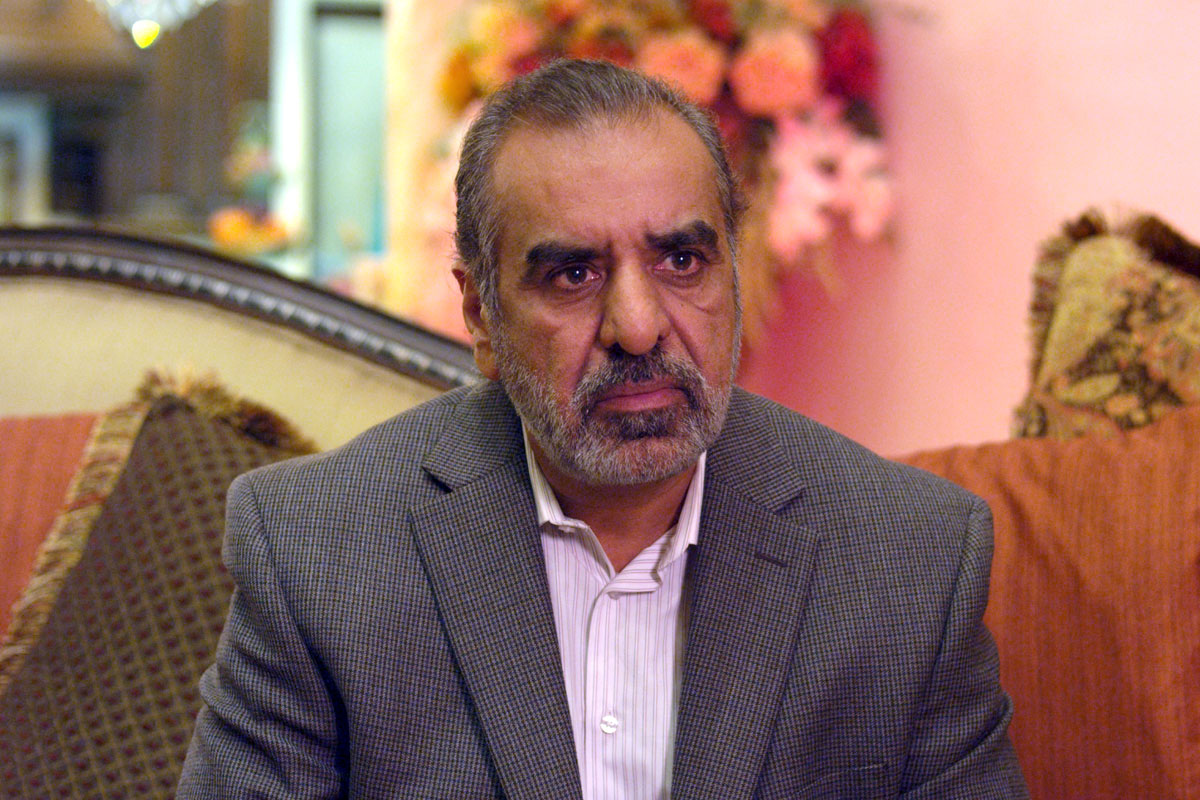The Story of a Lion Cub: Interview: Kavi Raz, Writer & Director of “The Black Prince”
Kavi Raz, director of “The Black Prince.”
There is a great deal of talk about “The Black Prince,” a movie slated for release worldwide on July 21. For this very reason, one just had to try and reach out to the man behind this effort, to get some answers about the film and his life. Ras Siddiqui (RS) interviews Kavi Raz (KR), a very interesting figure in Hollywood from amongst the Punjabi Diaspora.
RS: “The Black Prince” is based on the little-known life of Maharajah Duleep Singh, the youngest son of Maharajah Ranjit Singh. The world knows little about him or his life. What perked your interest in doing a film about him?
KR: That’s precisely the reason this film was made. The subject fascinated me so much that I felt it was a story that needed to be told. During Maharaja Ranjit Singh’s time, Lahore was the seat of perhaps the most powerful Kingdom in the world. It was progressive, modern, and wealthy. The army of Maharaja Ranjit Singh was commanded by great generals that included Europeans, Sikhs, Muslims and Hindus. It was a secular place. It flourished not just on the might of Maharaja Ranjit Singh and his General’s swords, but on his astute thinking and political foresight. It’s a story that is very relevant today and should be a case study for religious figures, politicians and thinkers. It was a powerful, just and harmonious kingdom.
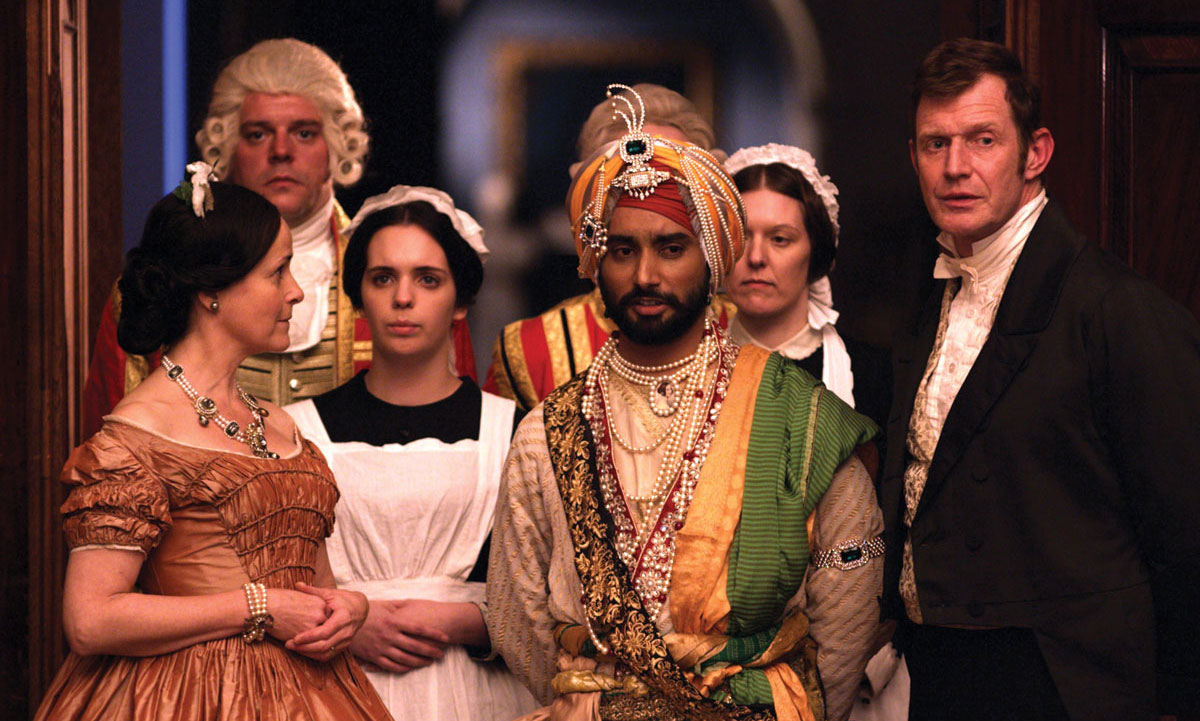
RS: The movie has been shown at film festivals in many places already including at Cannes and has received great reviews. It is slated for wide release in the United States on July 21. What are your expectations from its release compared to another movie you made, “The Gold Bracelet” (2006)?
KR: “The Black Prince” has been received with much praise from all quarters (Public and the critics alike). On IMDB and Facebook we have one of the highest ratings possible. The film will release worldwide, now including Pakistan and the Middle East as well, on July 21. It’s a true and very passionately told story that I feel will connect with all types of audiences. “The Gold Bracelet” was also very well received. Like “The Black Prince” it also won many awards. However, at that time I could not manage a much wider release for the film. But now things have changed a lot. Both stories however are as relevant today as they were during their time of happening. Both are either based or inspired by true events in our history. Both are emotional journeys of men who aspired to live truthful lives with the fear of God in their hearts.
RS: It is somewhat rare to a see a movie on a Punjabi in the English language. Will you be releasing it in the Punjabi and Hindi languages also at a later date?
KR: Punjab has a very rich and eventful history. So much has happened across the lands of Punjab. There are so many stories to be told about the land and people of this great region. And I mean Punjab on both sides of the border. Like a painting each tale dictates its own canvas. It’s up to the artiste to choose the right one and justify the story being told.
Initially we were thinking of just making the film in Punjabi. I made the choice to shoot it in English. I wanted to share this powerful story with a much larger audience across the board. It deserved a much wider canvas. It’s an epic story that needed to be told with that larger than life mind set.
It’s being released in English, Hindi and Punjabi. There is even talk of doing a Spanish language release. And who knows, hopefully it will continue its worldwide journey in other languages as well.
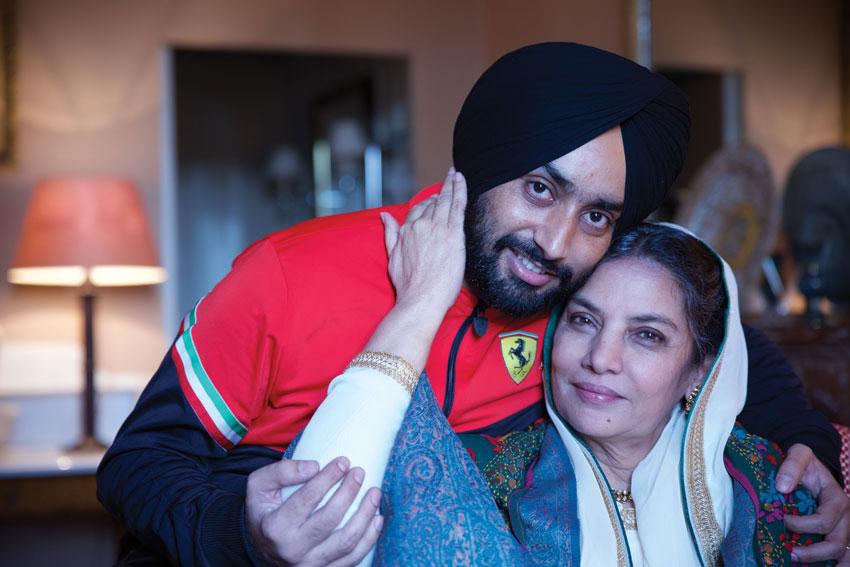
RS: The powerful female character older Maharani Jindan Kaur in the film is played by screen legend Shabana Azmi. Not only is she a great actress playing a strong mother figure in this movie but she is also a progressive political figure in India. Did the role fall right into place for her?
KR: Shabana Azmi is a delight to work with. She brings so much experience to the set. But more than anything else, it’s her willingness to challenge herself and take things to the next level. She was aware that I am an actor myself and that I knew my craft well. It made it so much easier for me to communicate my thoughts with her. She also speaks Punjabi in the film, a language that she is not conversant in. Her character is a multi-layered voice in the film. And she delights us with an amazing performance which could easily stand out as one of the highlights of her lengthy career.
RS: Both the leading man in this movie Satinder Sartaaj and a major supporting actor Rup Magon (of JoSH) also happen to be great singers. Is this just a coincidence or can we also expect some songs or music in this movie?
KR: The casting of two singers is just a coincidence. Both have done an amazing job in their perspective roles. There are a couple of songs by Sartaaj used sparingly in the background. The film is very much a Hollywood film in style, tempo and treatment. It does not have any of the elements of a typical Bollywood film. However, at the same time it’s very much a commercial film with humor, pathos and drama. Something for everyone.
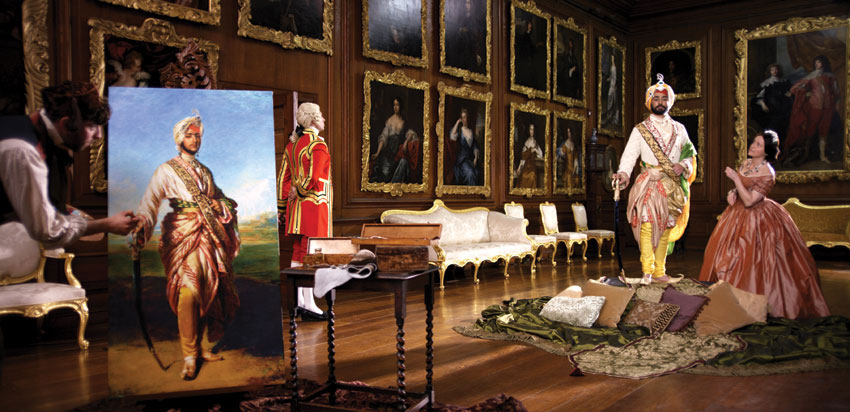
RS: The Kohinoor Diamond we have heard also plays a powerful symbolic role in “The Black Prince.” Are we going to see a rekindling of the controversy as to who its rightful owner should be today?
KR: The Kohinoor diamond does figure in the story and raises some very debatable questions. I do hope it starts a dialogue and gives the iconic diamond a voice to tell its story. I am working on a documentary on the Kohinoor and hope to further enlighten people about its origin and journey. In our research, we have discovered some very interesting facts that would definitely start a controversy and hopefully a resolve of some sort. Though I highly doubt the resolve part will ever happen.
RS: Punjabi history should be a gold mine for future English films. Do you have any other similar projects in mind after this one?
KR: Yes, Punjab is indeed a gold mine for great and epic stories to be brought to the silver screen. I have explored many subjects and have settled on something that has been very close to my heart for many years. In fact, I was initially introduced to it when I first arrived here as a young lad from England. It’s a story of India’s independence movement that has its roots right here on North American soils. I will be officially announcing the project after the release of “The Black Prince.” It will be an epic film and a TV series shot across several countries and featuring talent from Hollywood, Britain, Canada, India and Pakistan.
RS: “There is a Lion that sleeps in the heart of that boy” is a line that has been used to promote this film. The last Sikh Maharajah ended up waking up the lion within him with dire consequences. Does this movie expose colonialism in its exploitive form?
KR: That line is a reference to Maharaja Duleep Singh’s bearing. He was Maharaja Ranjit Singh’s youngest son born from his favorite queen, Rani Jindan. Maharaja Ranjit Singh was known as the Lion of Punjab for his fearless zeal on and off the battle field.
The film is not so much about the colonization of India and Punjab but more about what effects that had on the young boy king of the Kingdom of Punjab. It’s about his psychological journey to reconnect with his true bearing and fight for the freedom of his people and consequentially independence of India.
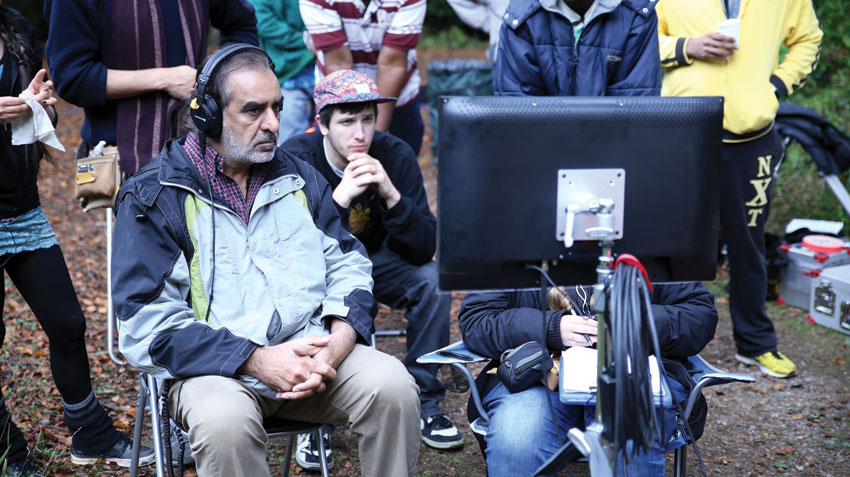
RS: Where does Kavi Raz really belong- Hollywood or Bollywood?
KR: When I decided to become an actor the only place I could think of was Hollywood. I grew up watching both Hollywood and Bollywood films. I loved Westerns and was a huge fan of their epic look and narrative style. Even though I watched a lot of Bollywood films and was somewhat familiar with the industry, I never really thought about working in India. I did take a trip early on in my career to Mumbai and found it did not suit my temperament. Even though now things are a lot different now and I do look forward to doing a film there, maybe a typical Bollywood masala film with a generous touch of Hollywood. I have recently directed a couple of Punjabi films. And I do see myself making Hindi films in the very near future. I am open to the opportunity. However, Hollywood is in my blood and this is who I am.
RS: There was once a young man in San Jose, California who dreamt of becoming an actor and a field hockey player. I met you and through our mutual friend over 40 years ago (we are exposing our age here). You have already made quite an impact by being one of the pioneers amongst South Asians to break into acting on a regular TV show in America (in the series “St. Elsewhere”) plus a great deal more since then. But did you ever get a chance to play much field hockey?
KR: Yes, I had a dream and I followed it. I left everything and headed out to Hollywood. I never looked back and remained true to my dream and passion. Sports have always been a part of my life. I played Field Hockey, Soccer, Volleyball and Kabaddi. Field Hockey was everything to me back then. The hockey stick and the ball became an extension of who I was and what I felt inside. Unfortunately, there wasn’t much scope in the sport here in the U.S. I captained the USA national team, but we hardy had any international matches. Exposure here was so limited. By the time Olympics rolled around I was busy in my acting career and could not devote time to the sport. Due to old injuries that are taking their toll on the body now, I don’t get to play hockey. But my passion for the game is alive and well.
RS: Thank You.
Some concluding thoughts: “The Black Prince” is a film that we should make an effort to see. Maharajah Ranjit Singh was certainly a Punjabi Lion and this film is about his youngest son, The British Empire is no more but its legacy is a rich one (although it was not always glorious). “The Black Prince” or what one can call “The Tale of the Lion Cub” is one very small slice of British-Indian history. And from what I do know about Kavi Raz, he is not one who will whitewash it just to make it more palatable to western audiences.
